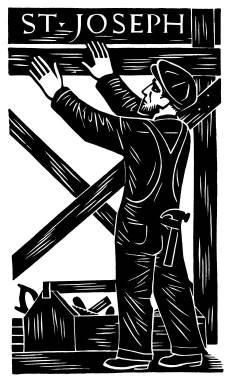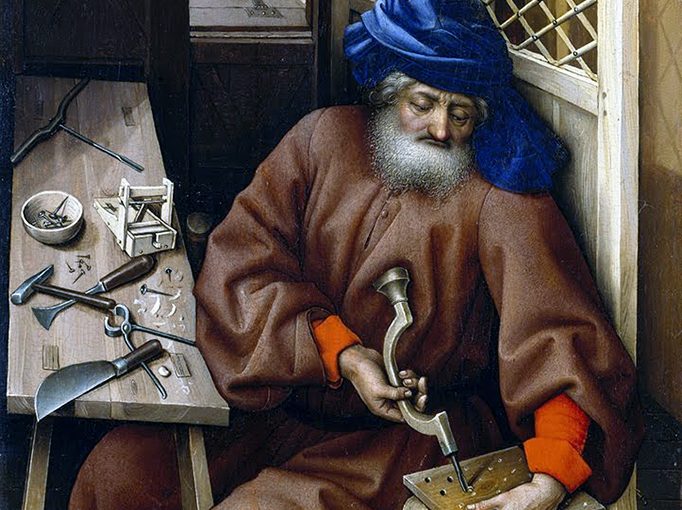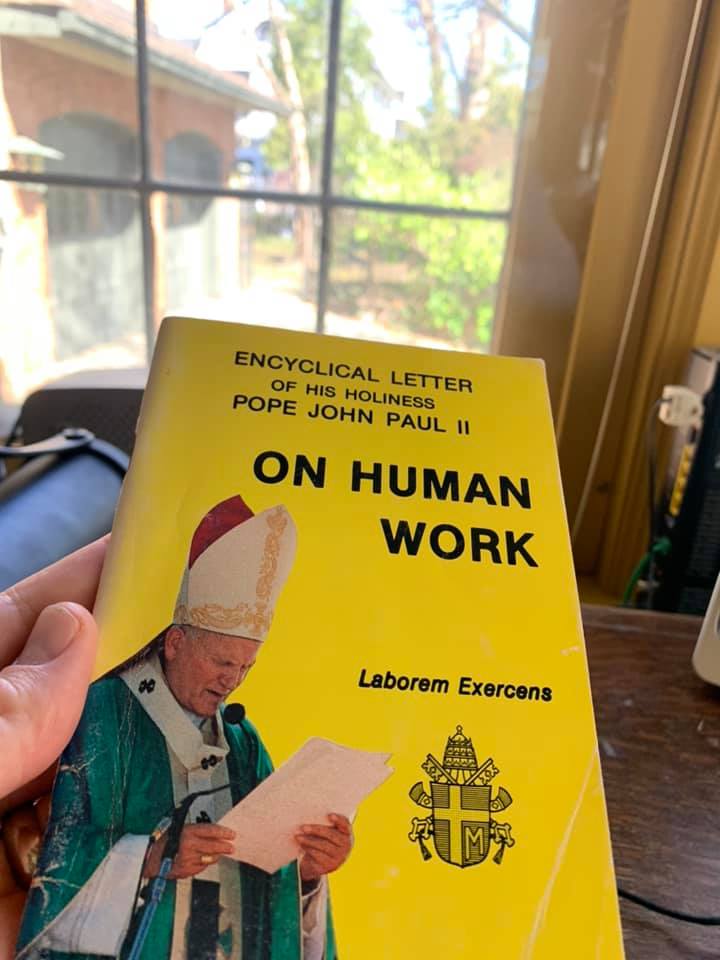
“The Lord God then took the man and settled him in the garden of Eden, to cultivate and care for it” (Genesis 2:15). The God the Father created all things and gave all of humanity to help Him to continue the work of creation by being co-creators, thus giving dignity to work.
Communism was in full force for a long time doing nasty things to people. One example is the Communist ideology propagated on the nature of work and the person was always contentious. But unbridled capitalism also rejects the dignity of work in the way it cheapens peoples’ dignity, the quality of the products made and the reduction of human interaction.
To positively respond to the Communists “May Day” celebrations for the Servant of God Pope Pius XII instituted the feast of Saint Joseph the Worker in 1955. In doing so, he told the world that work is not unimportant and that each person works with God in creating something good. He communicated that working men and women have a Good Shepherd who walks with each person, that in Saint Joseph the Lord is a defender and a father, a man who values his work as a carpenter whom God chose to be the head of the Holy Family. Joseph’s silent but has excellent hearing, and his intercession is very powerful over the Heart of the Savior. Remember he heard the God’s call through the angel in the silence of sleep; the angel used dreams to communicate God’s plan.
Pope Francis said today, “we celebrate the feast of Saint Joseph the Worker. Joseph, the carpenter of Nazareth, reminds us of the dignity and importance of labor. Work is part of God’s plan for the world; by responsibly cultivating the goods of creation, we grow in dignity as men and women made in God’s image. For this reason, the problem of unemployment urgently demands greater social solidarity and wise and just policies. I also encourage the many young people present to look to the future with hope, and to invest themselves fully in their studies, their work and their relationships with others. Saint Joseph, as a model of quiet prayer and closeness to Jesus, also invites us to think about the time we devote to prayer each day.”
Prayer to Saint Joseph, Workman
O glorious Patriarch, Saint Joseph, humble and just artisan of Nazareth, thou hast given to all Christians and particularly to us an example of a perfect life through diligent labor and admirable union with Jesus and Mary.
Assist us in our daily work in order that we, Catholic artisans, may also see in it an effective means of glorifying God, of sanctifying ourselves, and of being a useful member in the society in which we live. These should be the highest ideals for all our actions.
O dearest Protector, obtain for us from the Lord humility and simplicity of heart, love for our work and kindness towards our fellow-laborers; conformity to God’s will in the unavoidable trials of this life together with joy in bearing them; recognition of our specific social mission and a sense of responsibility; the spirit and discipline and prayer; docility and respectfulness towards superiors; the spirit of brotherhood towards our equals; charity and indulgence with our dependents.
Accompany us in times of prosperity when the opportunity is given for an honest enjoyment of the fruits of our labors; sustain us in our hours of sadness, when Heaven seems to be shut in our regard, and even the very tools with which our hands toil appear to rebel against us.
Grant that, in imitation of thee, we may keep our eyes fixed on our Mother, Mary, thy dearest Spouse, who as she spun silently in a corner of thy shop would let the sweetest smile course over her lips. Besides, may we never take our eyes off Jesus, Who was busily occupied with thee at the carpenters bench, in order that we in like manner may lead on earth a peaceful and a holy life, a prelude to the life of eternal happiness that awaits us in Heaven for ever and ever. Amen.
Prayer to be Recited by Workmen
Composed by Pope Pius XII


